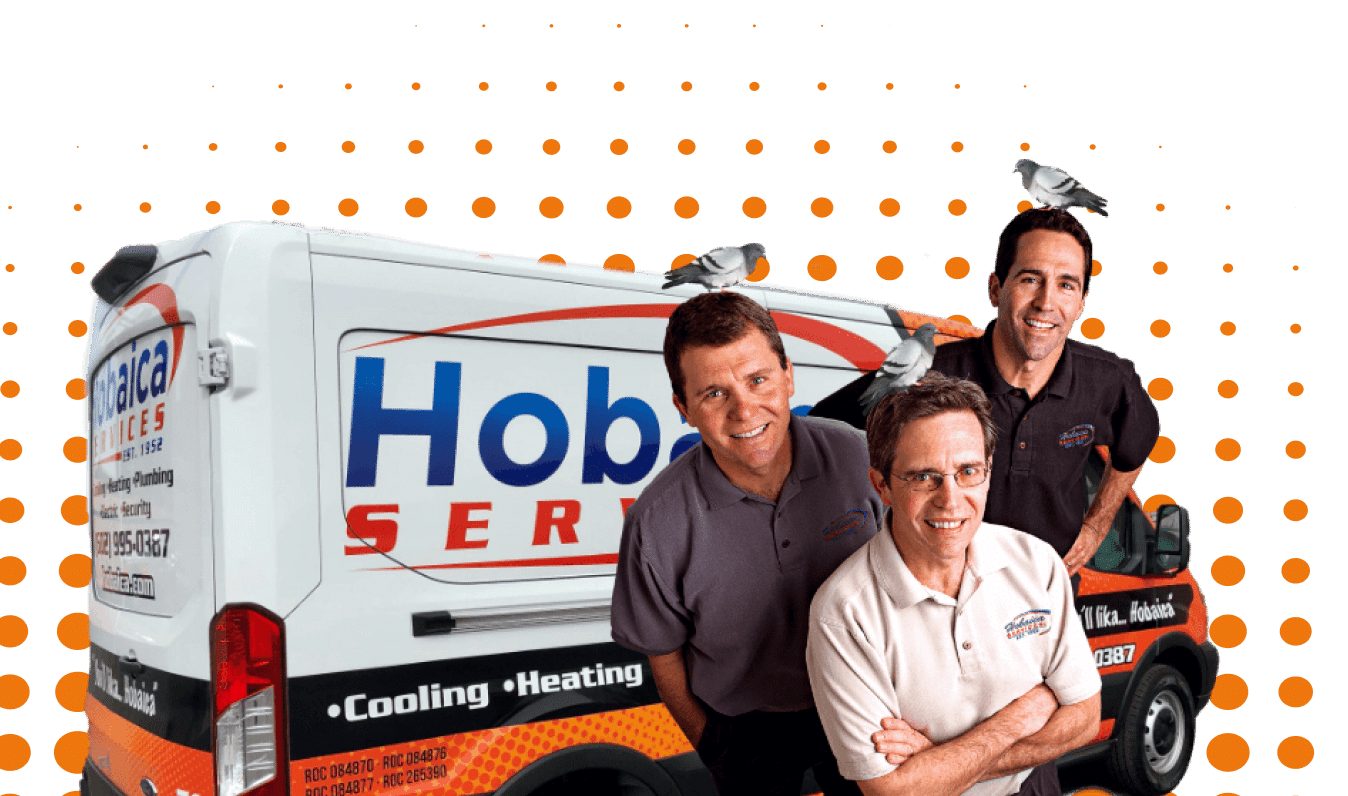
Know What Water Filtration Products Will Work Best For You
In the Phoenix area, homeowners may struggle to find the right water purification and filtration option to suit their needs. There are different types, different brands, different maintenance levels, different prices - it can get overwhelming.
Hobaica Services is happy to provide a guide on water purifiers for your home. We hope it is helpful as you navigate your different options. We are always available, so feel free to give our team a call if you have questions this guide does not answer - 602-633-9555 !
A Few Facts About Phoenix’s Water
- Phoenix has some of the hardest water in the country!
- The city relies upon the Salt, Verde, and Colorado Rivers for much of its water supply.
- There are years of water stored up from the Colorado River, but unfortunately it has been heavily contaminated from development, landfills, and factory dumping.
- Phoenix makes sure to test its water millions of times a year to ensure it meets quality standards.
- The city has experienced record growth over the past 20 years but has managed to keep its water use at the same levels with incredible water-saving solutions.
- To treat water, especially in summer, the city must add additional chemicals for algae control.
How Water Purification Products Can Help
While the water that comes from the city’s water supply is safe, many in our area still turn to water treatment products. From removing harsh minerals from hard water to ensuring that when you drink tap water from the faucet it tastes good, water filtration systems give you and your family high-quality water. There are many different water conditioning options for your home. We hope this guides you to a clean water solution that’s right for you!
Point Of Use Systems
Point of use water filtration systems are ones that are installed at the point where you get water. These systems are also typically reverse osmosis systems that are used for drinking water.
Common point of use systems include ones installed under a sink for use with a faucet and in a refrigerator for water and ice. These purifiers are typically less expensive than whole house systems and offer convenient access to filtered water at a specific location, which is appealing to many. Depending on the type of system, their maintenance will typically be easy.
Point Of Entry Systems
Point of entry water filtration systems, also known as whole home systems, are installed where water first enters a home. This ensures that all water used in the home is treated at the main water line before it is sent throughout a house.
These systems are ideal for homeowners who want all of their water, whether for drinking, cooking, bathing or laundry, to be filtered first. Whole home purification systems are generally more expensive than point of use systems. In addition, maintenance is generally more involved depending on the type of system installed.
Water Softeners
Water softening systems are designed to remove minerals from a home’s water. Homes with hard water have calcium and magnesium in the water which can cause scale buildup on appliances, reduce the effectiveness of soap and detergent, and irritate skin and hair. Typically water softeners are point of entry systems that work to soften water for an entire house.
The two types of softening systems are those that are salt-based and those that are salt-free. Salt-based systems physically remove minerals from the water using resin beads. This causes an ion exchange, replacing the calcium and magnesium in the water with sodium. Instead of removing the minerals, salt-free systems alter the minerals in water so they are unable to form scale buildup when the water is used.
Depending on the size of your house and your water needs, the price of a water softener can range from a few hundred to a few thousand dollars. There is regular maintenance involved with water softeners, which may include adding salt or checking and cleaning the resin bed.
Carbon Water Filtration
Carbon water filtration systems are a popular choice to treat drinking water. They use activated carbon which removes chlorine, sediments, sulfur and VOCs. Carbon filters can be installed as both point of entry and point of use systems.
There are two types of carbon filtration systems: granular activated carbon and carbon block. Granular activated systems contain loose granules of carbon that work well to remove larger particles from the water. In contrast, carbon block systems are made of finely powdered active carbon, allowing them to remove smaller particles and contaminants.
How much you’re going to spend and how often you have to maintain depends greatly on what type of system you choose. Whole house carbon filtration is going to be more expensive than point of use filters. For smaller units, you’ll need to replace the carbon filter every few months, while with larger units filter replacement is annual.
Reverse Osmosis
Reverse osmosis is a system that forces water through a semi-permeable membrane with very small pores. This membrane allows water molecules to pass through while blocking larger molecules, such as dissolved salts, bacteria, viruses, and chemicals. RO filtration is a highly effective means of purifying water that many in our area turn to.
RO systems are effective at removing up to 99% of particles, colloids, organics, bacteria, and pyrogens from the water. However, they do not address gases, some pesticides and volatile organic compounds (VOCs). The water quality is good from reverse osmosis systems, especially the drinking water, but they do generate wastewater that contains the removed contaminants.
RO purification systems are typically installed under the kitchen sink or in a refrigerator as a point of use system. The cost is affordable for these systems and maintenance is low, with filters changed once or twice a year and membrane replaced every 2 to 3 years.
Combination Systems
For homeowners looking for comprehensive purifying water solutions, companies have systems that are combinations of the different types of purifiers. One very popular design that our water quality experts frequently install is a whole house combination carbon and softener system.
Water Purification System FAQs
The most effective water filtration product in and around Phoenix are reverse osmosis systems. They utilize air pressure to push water through a semi-permeable membrane, effectively removing nearly all contaminants. This multi-stage process, typically involving 5 to 7 stages, ensures your water is purified to the highest standard.
Once you've identified the contaminants in your water, it's crucial to choose the right filter to address them. Consulting a water treatment specialist in Phoenix, AZ, can help you determine which impurities need to be removed from your home's water supply, ensuring you select the most effective filtration system.
The average cost of a whole-home water filtration system near Phoenix, AZ, typically ranges from $850 to $8,000. This price includes the system itself, installation, and any necessary plumbing adjustments. Costs can vary based on factors like the type of filtration system (e.g., carbon filters, reverse osmosis), the size of the home, and the complexity of the installation.
Get the Best Whole Home Water Purification Systems in Phoenix
The key is addressing your home’s specific water quality needs. You should have a home water test performed to see exactly what types of contaminants may need to be treated in your home’s water. Your water system expert will then be able to identify the right water filtration system for your home!
Connect with Hobaica for a quote on a combination water filtration system that requires little maintenance, has no monthly fee, and is manufactured right here locally in Phoenix! Or call our water quality team a call today at 602-633-9555 to set up your water consultation!
